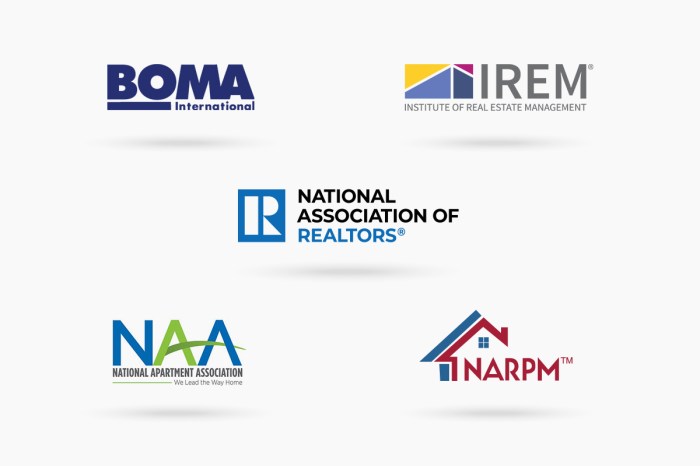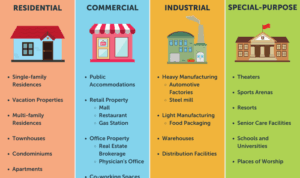Exploring the intricate world of property management for homeowners associations, this introduction sets the stage for a detailed and informative discussion. From the crucial responsibilities of property managers to the financial aspects and legal compliance, this guide covers it all in a structured and engaging manner.
As we delve deeper into each aspect of property management for homeowners associations, readers will gain valuable insights into the complexities and challenges faced in this field.
Overview of Property Management for Homeowners Associations
Property management plays a crucial role in maintaining homeowners associations by overseeing the day-to-day operations and ensuring the community runs smoothly. Property managers act as a liaison between the association board and residents, handling various tasks to uphold property values and enhance the overall living experience.
Key Responsibilities of Property Managers
- Financial Management: Property managers are responsible for collecting dues, creating budgets, and managing expenses to ensure the financial health of the association.
- Maintenance and Repairs: They oversee maintenance tasks, coordinate repairs, and ensure that common areas are well-maintained for the benefit of residents.
- Enforcement of Rules and Regulations: Property managers enforce community guidelines and regulations to maintain order and harmony within the neighborhood.
- Communication: They act as a point of contact for residents, addressing concerns, providing updates, and facilitating effective communication between all parties involved.
Common Challenges Faced by Property Managers
- Conflict Resolution: Dealing with disputes among residents or between residents and the board can be a challenging task for property managers.
- Budget Constraints: Limited financial resources can make it difficult to address maintenance issues or implement improvement projects within the community.
- Keeping Up with Regulations: Staying informed about changing laws and regulations affecting homeowners associations can be a daunting task for property managers.
Essential Skills for Property Managers in Homeowners Associations
Effective property management for homeowners associations requires a unique set of skills and qualifications to navigate the complexities of community living and ensure the smooth operation of the property.
Necessary Skills and Qualifications
Property managers working with homeowners associations should possess a diverse skill set that includes knowledge of property laws and regulations, financial management, maintenance procedures, and conflict resolution. In addition, qualifications such as a real estate license, certification in community association management, and relevant experience in property management are essential for success in this role.
Communication Skills
Communication skills are paramount for property managers in homeowners associations as they are responsible for interacting with a diverse group of homeowners, board members, vendors, and other stakeholders. Effective communication helps in conveying important information, addressing concerns, and fostering positive relationships within the community.
Property managers must be able to communicate clearly, listen actively, and adapt their communication style to different audiences.
Conflict Resolution Skills
Conflict resolution is a critical skill for property managers dealing with diverse homeowners who may have differing opinions, priorities, and expectations. Property managers must be able to identify conflicts early, remain neutral, and facilitate constructive dialogue to reach mutually acceptable solutions.
By practicing patience, empathy, and problem-solving skills, property managers can effectively manage conflicts and maintain a harmonious community environment.
Financial Management in Homeowners Associations
Property managers play a crucial role in overseeing the financial aspects of homeowners associations, ensuring that the community's funds are managed effectively and transparently.
Financial Responsibilities of Property Managers
Property managers in homeowners associations are responsible for:
- Collecting homeowners' association fees and dues
- Creating and managing the association's budget
- Overseeing financial transactions and records
- Implementing financial policies set by the association
Budgeting and Financial Planning
When it comes to budgeting and financial planning for a homeowners association, property managers must:
- Assess the association's financial needs and goals
- Develop a comprehensive budget that allocates funds for maintenance, repairs, and other expenses
- Regularly review and adjust the budget to ensure financial stability
Dealing with Unpaid Dues and Financial Challenges
Property managers need to address unpaid dues and financial challenges by:
- Implementing clear and effective collection procedures
- Communicating with delinquent homeowners to resolve payment issues
- Working with legal counsel if necessary to enforce collection actions
- Seeking solutions to overcome financial obstacles and maintain the association's financial health
Legal Compliance and Regulations for Homeowners Associations
Property managers for homeowners associations must navigate a complex web of legal requirements and regulations to ensure the smooth operation of the community. Failure to comply with these laws can result in fines, lawsuits, or even the dissolution of the homeowners association.
Role of Property Managers in Ensuring Compliance
Property managers play a crucial role in ensuring that the homeowners association operates within the bounds of local laws and regulations. They must stay up-to-date on changes in legislation, communicate legal requirements to the board of directors, and oversee adherence to these regulations within the community.
- Property managers must ensure that the homeowners association follows all relevant state and federal laws, including fair housing regulations, zoning ordinances, and tax laws.
- They are responsible for drafting and enforcing community rules and regulations that align with legal standards while also meeting the needs of residents.
- Property managers may need to handle legal disputes within the community, such as noise complaints, property damage claims, or violations of association bylaws.
Common Legal Issues and Solutions
Property managers may encounter a variety of legal issues in their role, requiring swift and effective resolution to maintain compliance and harmony within the homeowners association.
- Nonpayment of Dues:Property managers must address delinquent dues promptly to avoid financial strain on the association. Solutions may include implementing late fees, establishing payment plans, or pursuing legal action.
- Violations of Governing Documents:When residents fail to adhere to community rules or bylaws, property managers may need to issue warnings, fines, or even pursue legal action to enforce compliance.
- Discrimination Claims:Property managers must handle discrimination complaints seriously, following fair housing laws and conducting thorough investigations to address any instances of discrimination within the community.
Final Wrap-Up

In conclusion, property management for homeowners associations is a multifaceted domain that requires a combination of skills, expertise, and a keen understanding of the legal and financial landscape. By addressing the key areas highlighted in this guide, property managers can navigate the intricacies of managing homeowners associations effectively and efficiently.
FAQ Compilation
What are the typical responsibilities of property managers in homeowners associations?
Property managers in homeowners associations are responsible for overseeing maintenance, managing finances, enforcing rules and regulations, and facilitating communication between residents and the board.
How important are communication skills for property managers in homeowners associations?
Communication skills are crucial for property managers as they need to effectively interact with residents, board members, vendors, and other stakeholders to ensure smooth operations and address any issues promptly.
What financial challenges might property managers face in homeowners associations?
Property managers may encounter financial challenges such as dealing with unpaid dues, creating and managing budgets, handling unexpected expenses, and ensuring financial transparency within the association.






